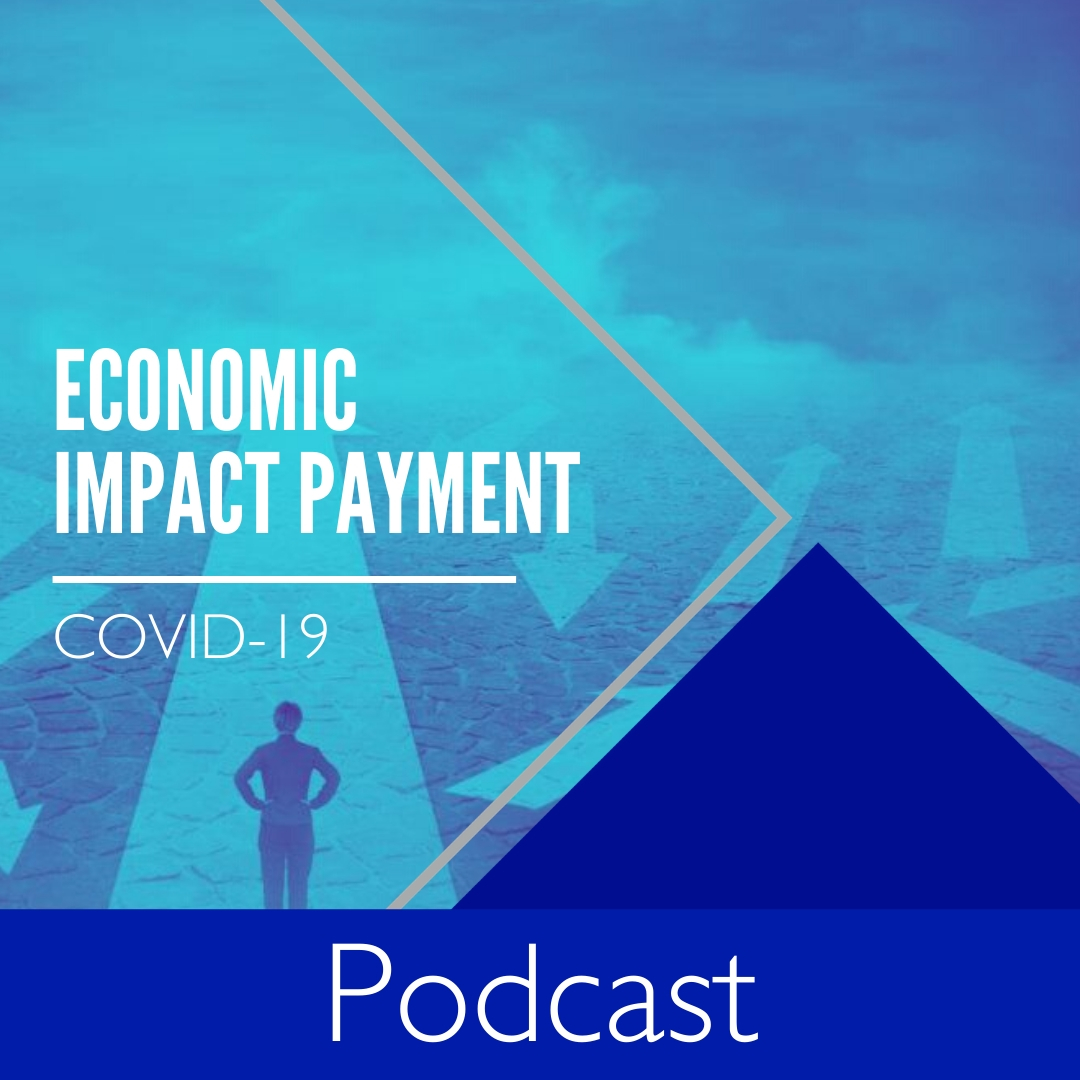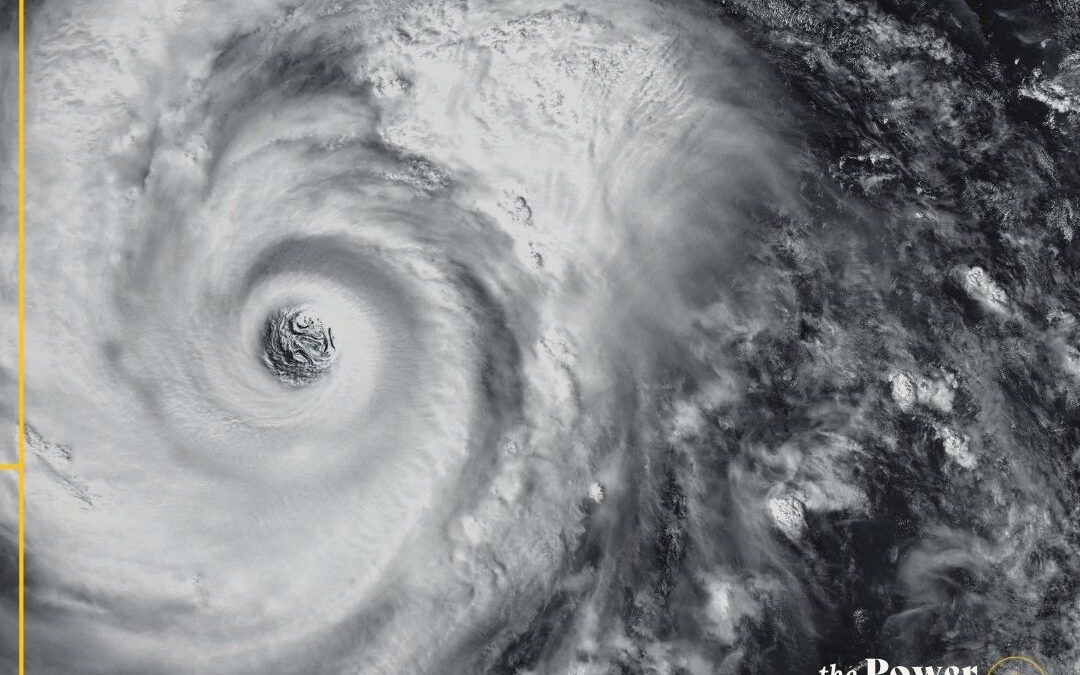We recorded this show on April 14, 2020, and things are changing daily. So this is what we know as of the time of recording.
Let’s talk a little bit about the payments that people are receiving. This payment is actually kind of complicated because it’s a prepayment of a 2020 credit, and you essentially have three options in order to get this payment.
The first one is it could be based off of your 2019 return. But let’s say your 2019 return hasn’t been filed; then it’s based off of your 2018 return. And let’s say that between your 2018 and 2019 return maybe you don’t get it; well then might still be able to get it based off of your 2020 return that will be filed in 2021.
What I have heard is that each adult should receive $1,200, or $2,400 if you’re married, and each child receives $500. Is this actually correct?
That’s correct in general, but let’s talk about who’s eligible to get those payments and who is not. The biggest thing is it comes down to how much money you make: What your adjusted gross income is.
So if you’re a single person and you have $75,000 or less of what they call “adjusted gross income,” you should be able to get the full amount of the credit. And as your income goes up—let’s say from $75,000 to about $99,000—that credit phases out, and then anybody over $99,000, they’re not eligible for the credit. And if you just take those numbers and double it ($150,000 for people that are married, and $198,000 is the total phase-out), that lets you know kind of who’s eligible for that credit.
And again, that is based upon last year’s tax returns, correct?
That is correct.
Who is not eligible, then?
Like we just talked about, people that are above the income thresholds, they’re not eligible any more.
But let’s say that you can be claimed as a dependent on someone else’s return. So I think this is really going to hit those individuals that are age 17 and maybe even up to 23 that are college students. Those people are probably not going to get any benefit from this credit.
If you don’t have a Social Security number, the IRS has really no way to track you, and so they have really no way to give you any kind of a payment.
And the same thing for a nonresident alien.
I also heard that in order to get the payment, you needed to file a tax return; is that correct?
Yes and no.
So like we talked about earlier, if you filed your 2019 return, the calculation is there in order for you to get the payment.
If you didn’t file your 2019 return, they’ll base it off of your 2018 return to see if you get the payment.
But let’s say you didn’t have to file a return, because maybe all you received was Social Security retirement or disability (SSDI), survivor’s benefits or even Railroad Retirement benefits, you’re also going to get the payment, even though you didn’t file a return.
Now one of the things you have to be careful of is for those that didn’t have enough income to file a return but aren’t getting any of those benefits we just talked about earlier. So for those individuals, they’re going to have to go to the IRS website and essentially fill out a return right on the website that’ll allow them to get that credit.
How will someone know when the payment is actually coming? Are we getting a physical check mailed to us by the IRS?
So most of the time what’ll happen is it’ll come via direct deposit, and we’ve had a lot of clients so far that have said that that direct deposit is coming in this week, and that’s what the IRS has kind of said, too. But they’ll also send you a letter 15 days after that payment is sent.
What if the IRS does not actually have my banking information?
Then they’re going to send you a check, but the plan is within the next week or so to have a spot on their website [NOTE: This is now live] that you can go to enter your direct deposit information into the system, so that they know where to send it, so you don’t have to wait so long for the check, because the check could take quite a long time to come.
Lastly, you said that it was a prepayment of a 2020 credit, and I’m wondering: What if I received a payment and in 2020 I find out that I did not qualify for it, or it was too low? What happens to me then?
It is kind of the best of both worlds at that point. So when you do your 2020 return, there will be a reconciliation process, and if you should have received a bigger payment than you received based off of your 2020 return, you’ll get that excess.
But let’s say that based off the 2020 return you shouldn’t have gotten a payment as big as you did, it sounds at this point like the IRS is not going to make people pay that back, but of course that’s always subject to change.
Sign Up to Receive Email Updates
Be sure you’re getting the latest insights as legislative developments occur. We’re here for you with tax insights and business resources.
Sign Up Now
We Are Here for You
Contact us to talk through the challenges your business faces as you navigate through this unprecedented time. No doubt you’ll need help assessing cash flow and making smart projections, reviewing loan covenants, lining up bridge financing, talking to banks and lenders, figuring out staff loads and employee counts, handling disrupted supply chains, and so much more.
Read An Important Message from Our Firm





